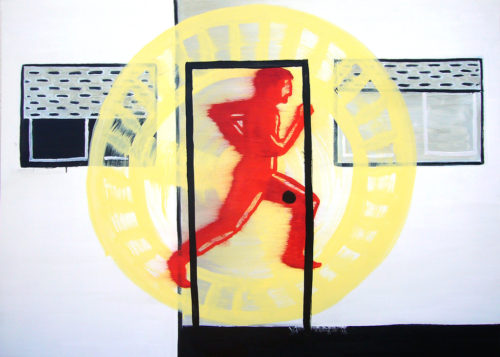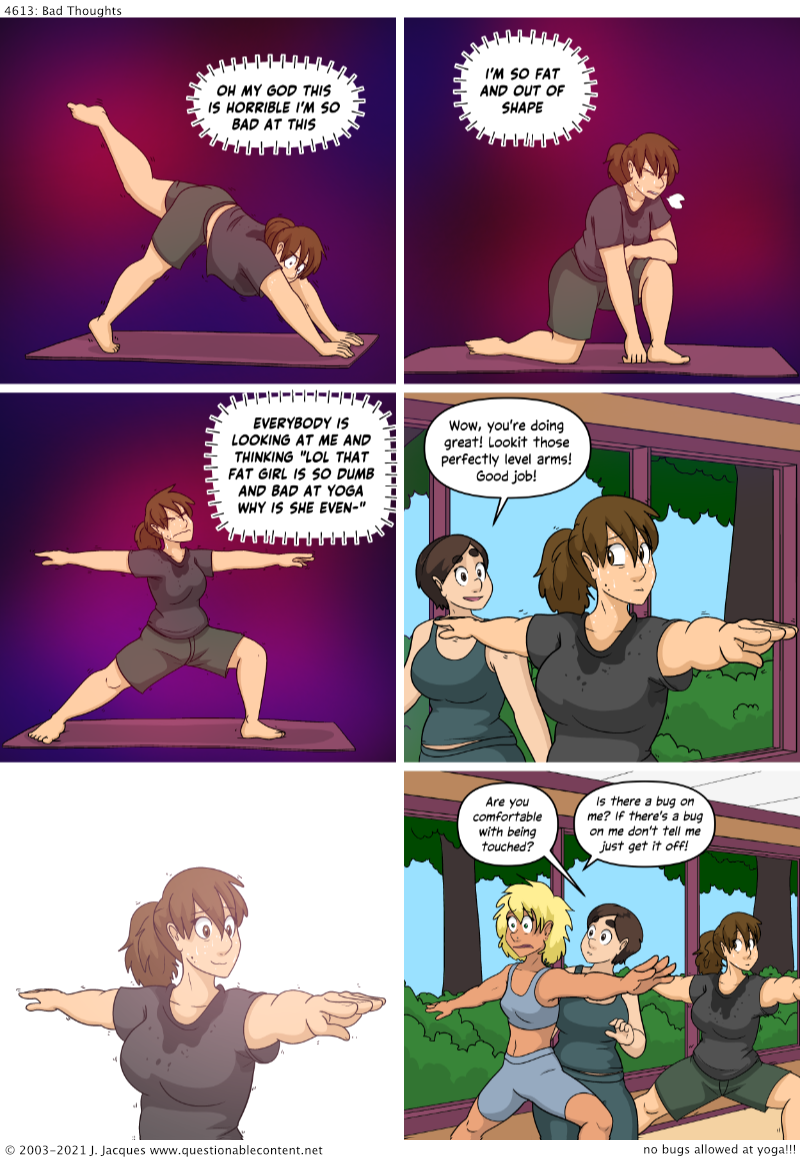
On March 3, 2014, the Baton Rouge chapter of The Oath Keepers of the Confederacy launched a campaign to ban Uncle Tom's Cabin from the public school curriculum and have all copies removed from the Louisiana Public Library System. In a manifesto mailed to every newspaper and television station in the state, they cited the overwhelmingly negative depiction of Simon LeGree and the reinforcement of widely-held stereotypes about slave-owners as their reasons for objecting so strongly to the novel. When a group of 75-100 Oath Keepers staged a book burning in front of the East Baton Rouge Public Library, librarians called the baton Rouge Police.
Upon arriving at the site, where several dozen copies of Harriet Beecher Stowe's anti-slavery novel served as fuel for the bonfire set by the protestors, Officer Lafayette "Fais Do Do" Fontenot was met by the three librarians who stood several feet from the bonfire, crying and begging the protestors not to destroy any more books. Officer Fontenot calmed the hysterical women down, and told the Oath Keepers to "go on home" as he didn't want to see any of "you nice boys" end up spending the night in a jail cell.
The group dispersed, leaving the fire to burn, and all were allowed to leave without any further action taken by law enforcement. The librarians, who were confused as to why no one had been arrested, were left to put out the flames and clean up the mess of burnt paper.
The following day, a reporter from The Baton Rouge Register called Officer Fontenot and requested a response to media reports that the three librarians had filed a formal complaint against him and were demanding a full-scale investigation of his failure to make a single arrest, even though he'd witnessed a crime in progress.
"Those little ladies need to calm the hell down," Fontenot replied, "I was there and I can tell you that what I saw was just some good ole boys having some fun. No one got hurt. It was a peaceful protest which, last I checked, was the right of every American. Matter of fact, the only ones making a fuss were those three librarians - bawling and yelling...and now they've got the papers and the news stations hassling me. My phone's been ringing all day, and there are reporters parked in front of my house. You know what that is? It's a goddamned lynch mob - that's what it is."
After an investigation, the librarians' complaint was found to have no merit. Officer Fontenot successfully petitioned to have any mention of the incident or the investigation removed from his file. The Oath Keepers of the Confederacy went on to stage a dozen more book burnings throughout the state. Uncle Tom's Cabin was not officially removed from library shelves, but it was pulled from the public school curriculum.
What do you do when your mind understands potential harm caused by an environment, yet when you are physically there you willingly jump inside the hamster-wheel, and even perpetuate the process for others?
I took two months away from my usual academic duties at the end of last year, focussing solely on completing my PhD candidacy document. I worked from home for most of it. During this “break”, where I worked consistently and productively each day, my reflection on my workplace was:
“My goodness we do and expect some things that are completely whack!”

I returned to work in January with a resolution. This year, decisions I made about my work would consider carefully the mental health of both my colleagues and my students. This post focusses on academic staff mental health. I will write about students in the future.
Being physically away from campus, focussing on just one aspect of my work, allowed my body a break from the constant adrenaline-bath of being involved in teaching, administration and research. The minute-by-minute decision whether to complete a task to the standard and time 1) allocated by the university workload system, or 2) that it needs, or even 3) that is expected and reinforced by the university promotion system and academic culture. An ever-increasing hierarchy of demand, starting with the academic workload system’s impossibly inadequate allocation, moving through to academic culture’s unrealistically impossible demands.
Constantly feeling inadequate because I simply cannot perform work in the time allocated, even to the lowest possible standard. Working extra hours, and completing a large amount of what was expected, but then looking at the standard of my output and feeling like I was letting down my students, the university, the profession students would graduate to, colleagues and myself. A feeling of constantly cutting corners. Feeling like I was not empathising with the very real life impact of my decisions on students because I simply could not take the care and time needed. Like I could not create the most effective learning environment. And as a researcher? Totally avoidant due to my own inability. Merely finding convenient excuses not to do the reading and writing that I should do to maintain currency in what are meant to be my passions.
Then internalising blame for feeling like this. Feeling this way was simply my fault because I am overly-perfectionist, and if I had better time-management skills I could manage my own workload. It was surely my own desire to do things in a way that interested me, or do that little bit extra, that meant I complicated each task. If I only stopped over-thinking and over-doing then I should have plenty of time to achieve what was needed to the standard required. It’s up to me to say “no”, and I should do it. That if I exercised more I would be fresher and more resilient. I was somehow creating a spiral of inadequacy by getting so tired out trying to manage it all. That surely if I could work out how to be more efficient, and somehow caught up on what felt like an ever-growing backlog, I could do it differently in the future, in the way expected.

Despite how I felt I was doing my job, I was promoted to Senior Lecturer at the end of last year.
I have an ongoing position, which in Australia is as secure tenure as is possible. This makes me ridiculously and abberantly lucky.
In Australia, one estimate suggests that between 50-80% of all undergraduate teaching is done by casual/short contract staff. All going through similar mental gymnastics about their performance, but with the stakes being not only their self-concept and mental health, but whether they will be re-hired next semester.
Returning to work this year, I can see colleagues caught in the same spiral. Health issues directly related to stress are not uncommon. Collectively we watch each other work ridiculously long hours and achieve some wonderful outcomes. We make plans collectively as though the workload allocation was actually fair and reasonable. If we cannot fit it all in, then we are the ones at fault rather than the system we work in.
Not helping colleagues shoulder their load feels churlish. We very easily see when someone else is working too-long hours. Sometimes I think we feel more protective of them than of ourselves, when we are actually exhibiting exactly the same behaviour. Academics engaging in protective behaviours that limit their own overwork can be characterised as not team players, and “problem people”…and their actions do have real impact on already-overloaded team members. Self-care can mean actively not caring for others. An environment where we need to make this choice is whack.
There is a lot of discouraging “help” offered out there. Like the very sound suggestion that if academics replace “more” with “enough” they would be happier and healthier …with the kicker that …. then we would not have to work the expected 80-hour work week … but could do perfectly fine if we just do 50 hours per week.
I also came across this wonderfully, eloquent outline by Kate Bowles of a system that encourages lack of self-care and reinforces collusion in perpetuating this… . I find it really chilling because earlier this year I sent exactly the series of texts listed to members of my monthly bookclub from work one evening… and then went home to bed with a small cold that knocked me around far more than it should have for three or so weeks.
… throw together a crowd of smart, driven individuals who’ve been rewarded throughout their entire lives for being ranked well, for being top of the class, and through a mixture of threat and reward you can coerce self-harming behaviour out of them to the extent that you can run a knowledge economy on the fumes of their freely given labour.
They will give you their health, their family time, the time they intended to spend on things that were ethically important to them, their creativity, their sleep. They will volunteer to give you all of this so that you can run your business on a shoestring, relative to what you intend to produce, so that you can be better than the business up the road. They will blame themselves if they can’t find enough of this borrowed time—other people’s borrowed time—to hand over to you.
Just wait while I send this email. Start without me. I’ll be along in a bit. Do you mind if I don’t come?
They will do this at all levels of the career, even if you pay them by the hour at a real rate that disintegrates to something approaching casual retail work once you factor in all the things they’ll have to do on their own time to get the job done well. They will do this especially if they’re also trying to run alongside the speeding train that might represent their future career hopes.
Some days they will also drive each other for you. They will whisper about each other, and turn a blind eye to each other, and not quite find the time to act on their own secret critical thinking about any of it. They will also surreptitiously maintain each other through care and coping practices and shrugs in the corridor and exchanged glances and raised eyebrows in meetings and Friday drinks that become chronic, secretive drinking problems so that they can get some rest without writing emails in their heads at 3am.
In fact, if you get the scarcity, intermittency and celebratory settings for occasional reward just right, then the toxic alchemy of hope and shame will diminish their capacity for solidarity, and they will keep the whole thing going for you, in the name of commitment, professional standards, the value of scholarship, academic freedom, the public good of educational equity.
But I love teaching. I love my students. I love my research. I love that I get to work from home on Fridays. And Saturdays. And Sundays.
Until they don’t. Until they can’t.



